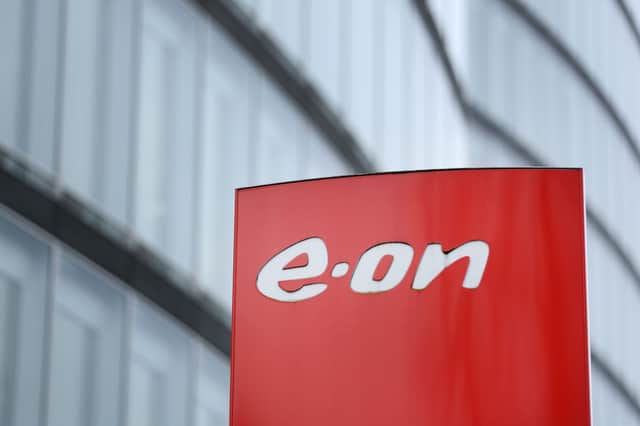Octopus Energy and E.On Next compensation: why Ofgem rules made them pay out - complaints process explained
and live on Freeview channel 276
Around 100,000 households are set to receive almost £70 from their former energy suppliers under Ofgem compensation rules.
Octopus Energy, E.On Next and Good Energy’s ex-customers are in line to receive the money due to previous missed or delayed compensation payments, which were themselves triggered by late final bills. The energy regulator said the it wanted to ensure bill payers “get the service they deserve”.
It comes after energy bills became more expensive in April as the government’s winter grants scheme came to an end. Households are set to receive cheaper energy under the lower energy price guarantee rate until the end of June.
Wholesale prices have decreased considerably in recent months, with the price drops set to be reflected in consumer bills later this summer. It is likely the Ofgem Energy Price Cap will return as the upper limit for energy bills around the same time.
So, why have suppliers been paying out extra money to their customers - and could you be eligible for a payout? Here’s what you need to know.
Why are energy suppliers paying out compensation?
Under Ofgem rules, which were introduced in May 2020, energy suppliers have to pay out £30 to customers who have switched to a different supplier if they fail to provide a final bill within six weeks. Another £30 gets added to the tally if the compensation doesn’t arrive within another 10 working days.
The regulations are designed to incentivise suppliers to avoid delays or errors when it comes to customer switches. Ofgem said late final bills can mean a customer isn’t set up properly with their new supplier, is left in debt with their old provider, and could face a hefty, unexpected bill.


The three companies that have been forced to pay out are E.On, Octopus and Good Energy. Together, they have had to compensate more than 114,000 former customers, with some having waited for more than a year to receive the money they were due.
E.On has coughed up £5.5 million to around 95,000 customers
Octopus has paid out £750,000 to 19,000 households
Good Energy has compensated 350 customers to the tune of £18,000
The suppliers also paid an additional £1.7 million either directly to customers or - if that was not possible - to the energy industry voluntary redress scheme (EIVRS), which supports vulnerable consumers. Again, E.On made up the bulk of this payment (£1.3 million). In all, the total compensation package came to around £8 million.
Ofgem said it was important to enforce its switching standards given that more consumers are set to seek out switches later this year as a result of a fall in energy prices. The regulator said E.On, Octopus and Good Energy have all since updated their systems and processes to avoid a repeat.
Neil Kenward, director for strategy at Ofgem, said: “Ofgem introduced these standards to make sure customers get the service they deserve when switching energy supplier. Our rules mean that where energy companies drag their heels, customers are automatically compensated. We won’t hesitate to hold energy companies to account.
“As the energy market starts to recover, we’ll likely see a return to more switching, and this action is a reminder to suppliers that they need to make switching as easy and convenient as possible for their customers, and where they cause undue delay, pay compensation swiftly.”
A spokesperson for E.On said the company had referred itself to Ofgem in 2022 and had apologised to affected former customers. They added: “We also paid £1.3 million to Ofgem’s EIVRS fund in recognition of our failings. We have since taken steps to ensure this error does not happen again.”
NationalWorld's money editor Henry Sandercock urges people to keep a record of their complaints
"I would say the key take away from this story is that you need to be clinical when switching energy supplier. Take a note of when you have phoned the provider you’re switching away from and the name of the customer service person you have spoken to. Or, if contacting a firm through other means, ensure you have a record of when you contacted them. While Ofgem is providing a valuable consumer safety net here, I know from experience that pressing firms with evidence of their lack of action and reminding them of who they are regulated by can deliver swift results."
Will you get any compensation?
Given Ofgem says the compensation has been paid and the switching issues at these energy suppliers have been ironed out, it is likely that this round of compensation payouts has concluded.
But if you feel like you have been unfairly treated while switching, you should complain directly to your supplier. Ofgem says they should have a clearly-defined complaints process. It also urges consumers to keep records of what contact they have had with the company in question.
Citizens Advice has templates of complaints you can use. It also runs an Extra Help Unit for vulnerable people, which can be contacted either through an online form or over the phone on 0808 223 1133 (0808 196 8660 in Scotland).
If eight weeks pass and you are stuck in a war of words with your supplier, Ofgem recommends approaching the Energy Ombudsman with your predicament. This service can force a company to correct a problem, apologise and explain what happened to you. They can also make a company fork out compensation.
To contact the scheme, you can call 0330 440 1624 or fill out an online form. Ofgem itself cannot deal directly with consumer complaints but it keeps tabs on market activity through supplier complaints data, which they legally have to provide.
Comment Guidelines
National World encourages reader discussion on our stories. User feedback, insights and back-and-forth exchanges add a rich layer of context to reporting. Please review our Community Guidelines before commenting.
